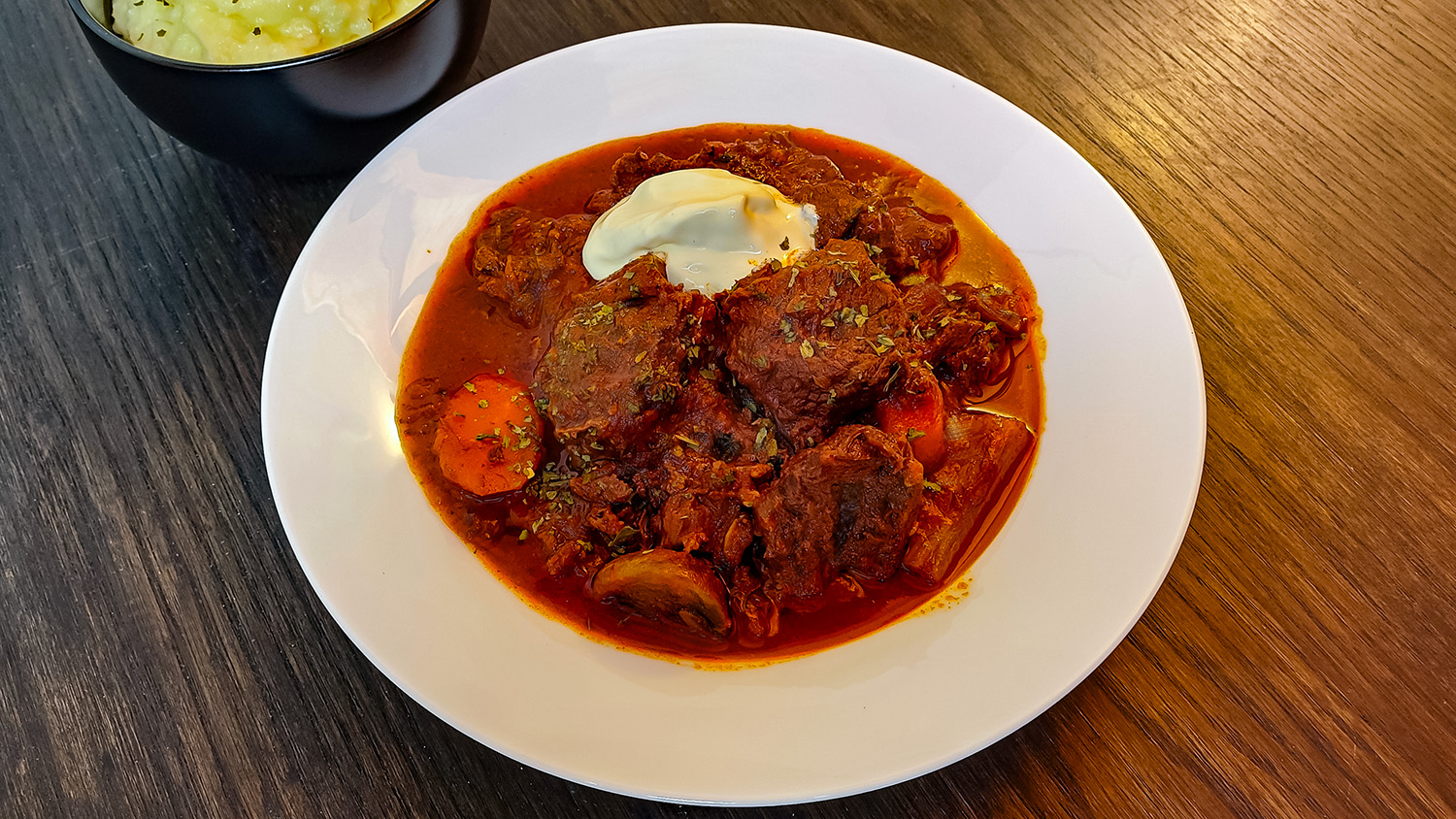|

Goulash or gulyas
(= herdsmen; as in a dish cooked by such on the range) is the
national dish of Hungary.
It is pronounced "GU-YAS" ("LY" in
Hungarian is pronounced as a "Y").
Hungarian goulash looks fiery red (and therefore
spiciness is induced) but this is due to the use of lots of
sweet paprika. Organoleptically, goulash is distinctly of paprika and onions.
Depending on the origin of the goulash recipe, various spices
such as carraway seeds, cinnamon, dill or poppy seeds may be
added.
A traditional goulash has a consistency between a stew and a
soup, and is apparently never thickened with flour (it is
thickened by only the ingredients). Modern iterations more often
than not (especially outside Hungary) are stews.
This was how I made it on 09 October 2025
1. Ingredients
-
1.2 kg Gravy Beef
(this is a shank cut), or just Beef Shank.
Beef shank is a good cut for stews such as a goulash
provided it is cooked long enough to break down the connective
tissue into a gelatinous mouth feel. Other cuts without such
tissue turns out "dry" and "wooden" on the tooth).
-
3 heaped tablespoons
of SWEET paprika.
-
2 (or more) large onions (sliced).
-
4 - 5 large cloves of garlic (diced).
-
2 tablespoons tomato puree.
-
2 large carrots (sliced).
-
1 - 2 stalks of celery (sliced).
-
Some mushroom (sliced).
-
1 bay leaf.
-
A good dash of ground pepper.
-
Stock powder (chicken or beef).
-
Sour cream.
-
Since I served
my goulash with mashed potatoes, I did not add
potatoes to the goulash itself but you may choose to
do so.
2.Method
-
In a heavy
bottomed pan (like a Dutch oven), sear the beef pieces.
The
greater the sear, the more the flavour which results in the
goulash. Set aside.
-
Now fry the onion slices until translucent; add the garlic and
fry only until the garlic is smelt.
-
Add the carrots and continue frying for a few minutes after
which return the seared beef to the pan.
-
Add the tomato puree and continue frying.
-
Only now is paprika is now added (it is not fried at the
beginning as this may change its taste).
Keep the heat low after you have added paprika.
-
Add
ground pepper and stock powder to taste (add less than
necessary at this stage and do final adjustment near serving
time).
-
Add the bay leaf.
-
Add water to cover the beef.
-
Lid the pan and slow simmer for at least 3 hours (or less if you
transfer the lot to a pressure cooker - 30 minutes at 15 pounds
per square inch should do it).
A slow cooker is an alternative to simmering in a pan.
-
Add the sliced celery in the last hour of the cooking so that it
does not turn mushy.
-
At the end of
cooking time, adjust for taste with stock or stock powder
and condiments.
-
You may now
choose to stir in some sour cream, or add dollops of it on
top of each serving.
Boldog főzés!
|